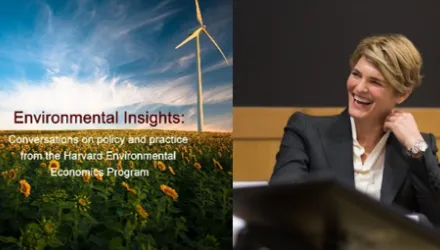Note
This Discussion Paper is the third in an annual series supported by the Enel Foundation addressing important topics in international climate policy.
The Harvard Project will co-sponsor a side event, based in part on this paper, at the Twentieth Conference of the Parties of the United Nations Framework Convention on Climate Change in Lima, Peru on Monday, December 8, 2014. For details see here.
Harvard Environmental Economics Program co-hosted a workshop on this topic and also released a report following the results of the workshop, Assessing the Energy-Efficiency Gap.
ABSTRACT
Improving end-use energy efficiency—that is, the energy-efficiency of individuals, households, and firms as they consume energy—is often cited as an important element in efforts to reduce greenhouse-gas (GHG) emissions. Arguments for improving energy efficiency usually rely on the idea that energy-efficient technologies will save end users money over time and thereby provide low-cost or no-cost options for reducing GHG emissions. However, some research suggests that energy-efficient technologies appear not to be adopted by consumers and businesses to the degree that would seem justified, even on a purely financial basis. We review in this paper the evidence for a range of explanations for this apparent "energy-efficiency gap." We find most explanations are grounded in sound economic theory, but the strength of empirical support for these explanations varies widely. Retrospective program evaluations suggest the cost of GHG abatement varies considerably across different energy-efficiency investments and can diverge substantially from the predictions of prospective models. Findings from research on the energy-efficiency gap could help policy makers generate social and private benefits from accelerating the diffusion of energy-efficient technologies—including reduction of GHG emissions.
Todd D. Gerarden, Harvard University
Richard G. Newell, Duke University
Robert N. Stavins, Harvard University
Robert C. Stowe, Harvard University
Gerarden, Todd D., Richard G. Newell, Robert N. Stavins and Robert C. Stowe. “An Assessment of the Energy-Efficiency Gap and its Implications for Climate-Change Policy.” Harvard Project on Climate Agreements, Belfer Center, November 2014







